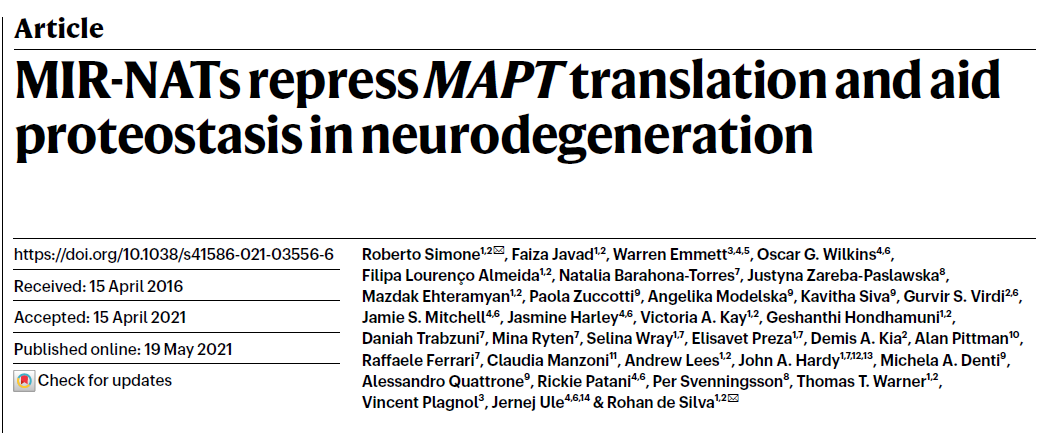Per Svenningsson was granted an extended Wallenberg Clinical Scholars grant for another five years.
Co-authorship in a Nature article
A full-length article in the journal Nature (co-authored by Justyna Zareba-Paslawska and Per Svenningsson) demonstrates a key role for MAPT-AS1 in tauopathies, such as frontotemporal dementia, progressive supranuclear palsy and corticobasal degeneration. (study funded by CBD Solutions). Read article here
Funding from the Arvid Carlsson foundation
From the article in “Läkartidning” (read original article here):
The Arvid Carlsson Foundation has decided to award Professor Per Svenningsson at Karolinska Institutet the foundation’s grand prize for outstanding research in the spirit of Arvid Carlsson. Per Svenningsson was rewarded for his innovative integrated animal experimental and clinical studies regarding Parkinson’s disease and depression. The prize consists of a diploma and a research grant of SEK 700,000.
Review article published in Molecular Psychiatry
A review article has been published in Molecular Psychiatry.
The review focuses on how GPCRs mediate antidepressant actions and discusses recent insights into how GPCRs regulate the pathophysiology of Major Depressive Disorder (MDD).
New clues about the link between stress and depression
Researchers at Karolinska Institutet have identified a protein in the brain that is important both for the function of the mood-regulating substance serotonin and for the release of stress hormones, at least in mice. The findings, which are published in the journal Molecular Psychiatry, may have implications for the development of new drugs for depression and anxiety.
Grant from the Swedish Research Council for medical research
The Svenningsson lab was awarded a grant from the Swedish Research Council, to study Receptor-mediating mechanisms in Parkinson’s disease and depression.
Read KI’s press release here


